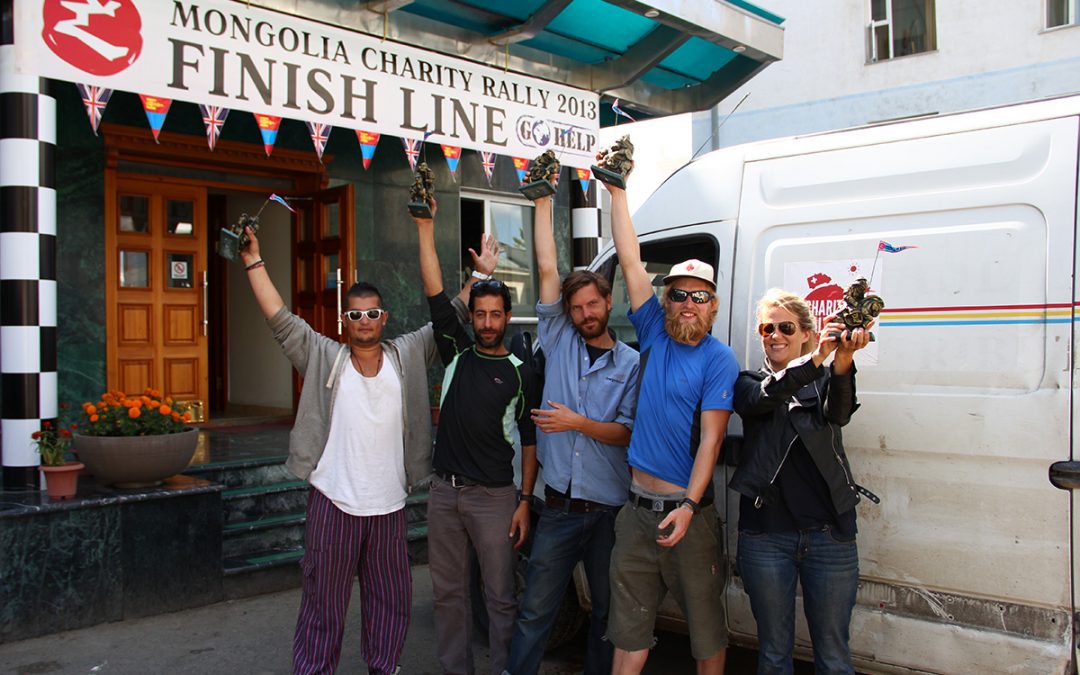by Robin Ewing
Sept. 10, 2013
Opel made it! Last week, she arrived at the Go Help office in Ulaanbaatar by tow truck. Munhuu, the mechanic who rescued her, says he’ll soon have her back in tip-top shape. I’m thankful she’s no longer stranded in the harsh lands of western Mongolia, locked up in the back of the only shop in Tolbo, population 1,000 (I would have guessed 15).
We didn’t make it to Ulaanbaatar much faster. From Tolbo, it took us another hard week. We entered west, where the borders of Russia, China and Kazakhstan converge. It’s majestic here, high and cold, the vast steppe stretching up to the Altai Mountains that rise like jagged shark teeth. Shaggy baby yaks and skittish goats wobble by. Massive Golden Eagles, their wingspans up to 8 feet, perch like sentinels in the road. They hunt wolves. The nomads who have lived here for thousands of years must be supernaturally tough.
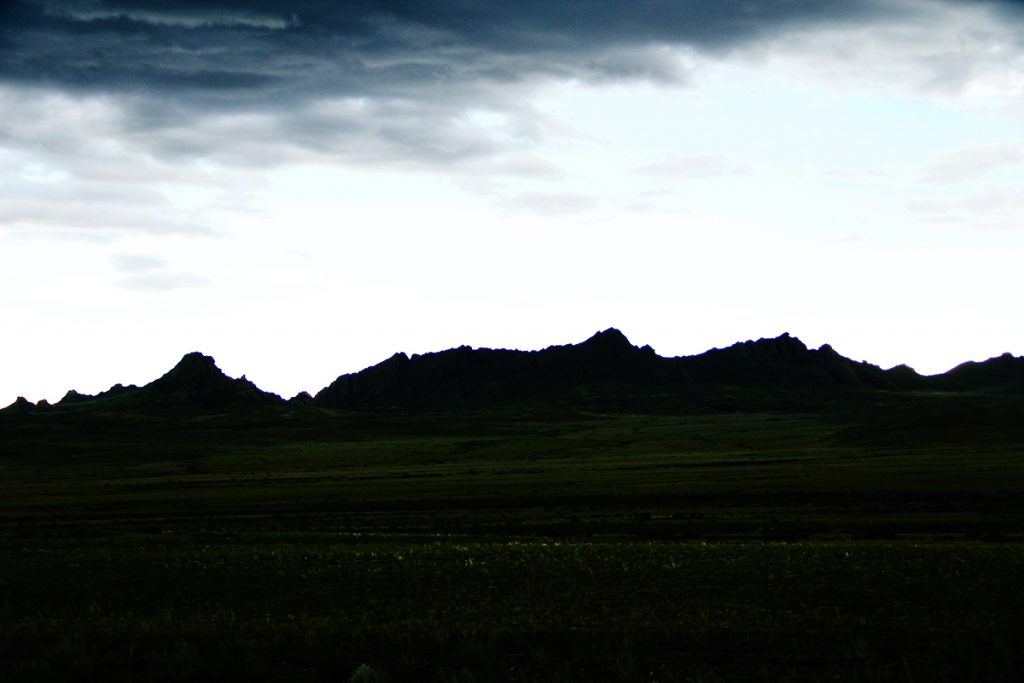
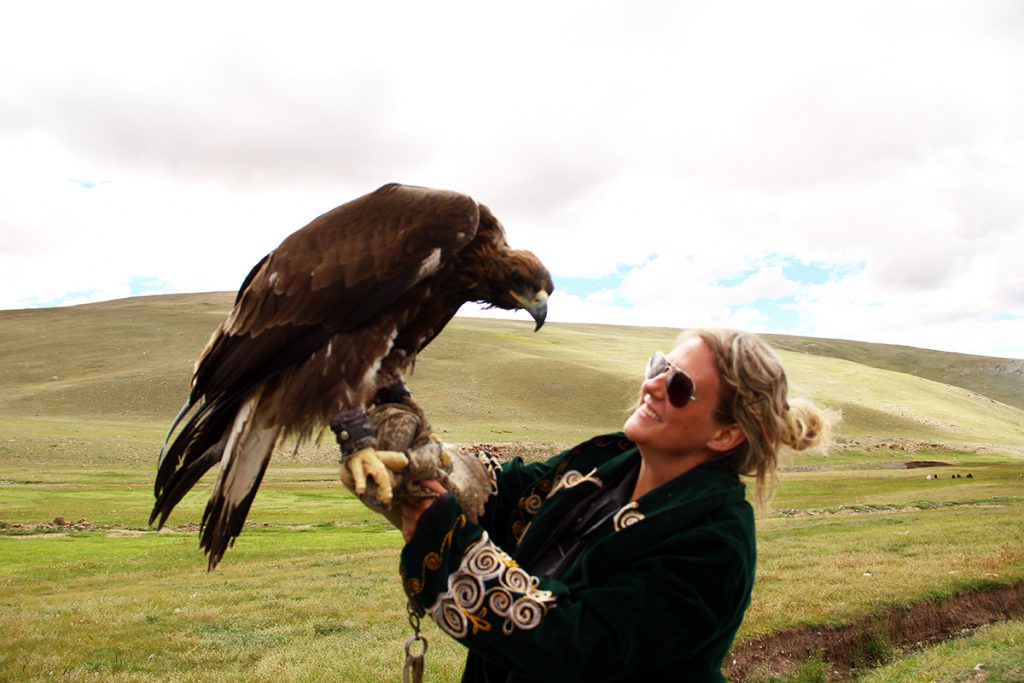
In central Mongolia, we skirted the northern edge of the barren Gobi Desert. On one particularly monotonous and bone-rattling track, the din too loud to talk, I took to counting discarded goat hooves in the road. I saw 15 in an hour. We were averaging 9 mph so the little furry brown legs weren’t hard to spot, especially when lying next to the full horse skeleton or herd of Bactrian camels with limp, drooping humps.
It was an incredible week. We camped in places so beautiful they seemed unreal, got lost once (apparently, there are four town in Mongolia named Altay), nibbled on hard cheese made from drained sour milk, got towed across two rivers and crossed a lot more, patched a hole in the oil pan with superglue, drove through a thunderstorm at night, tried and failed to order vegetarian food in a restaurant, fixed a flat or two and played card games by flashlight in a muttony ger.
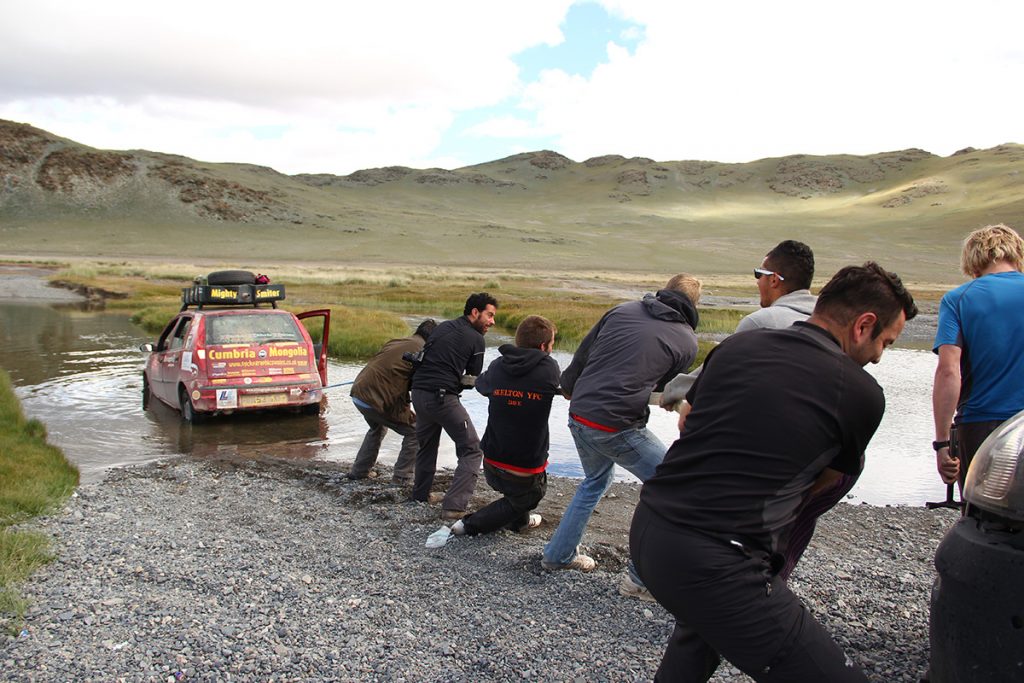
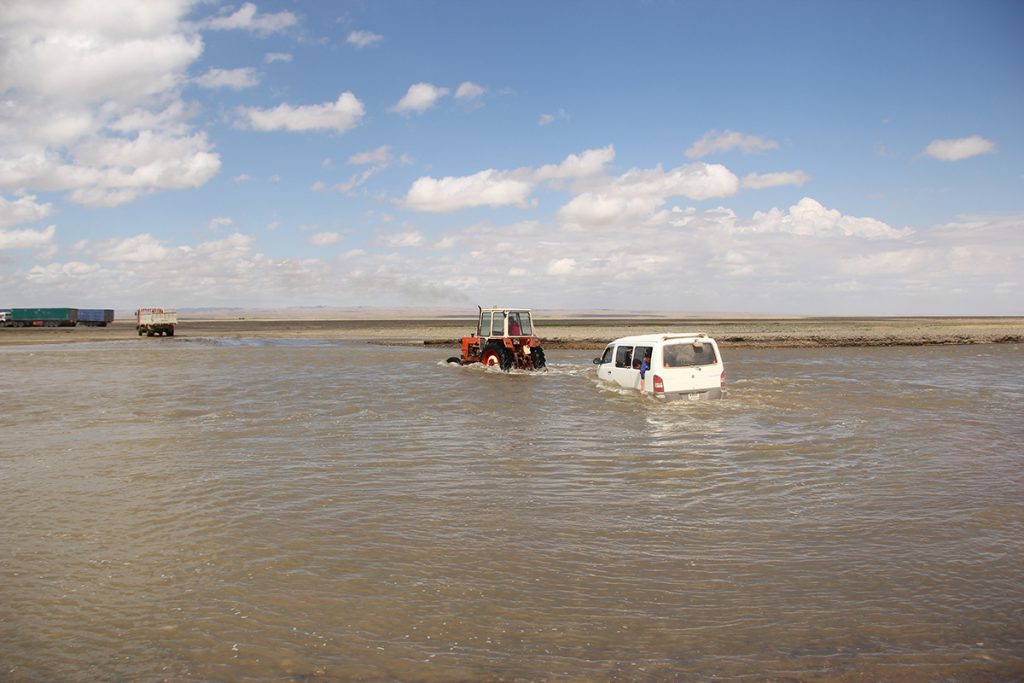
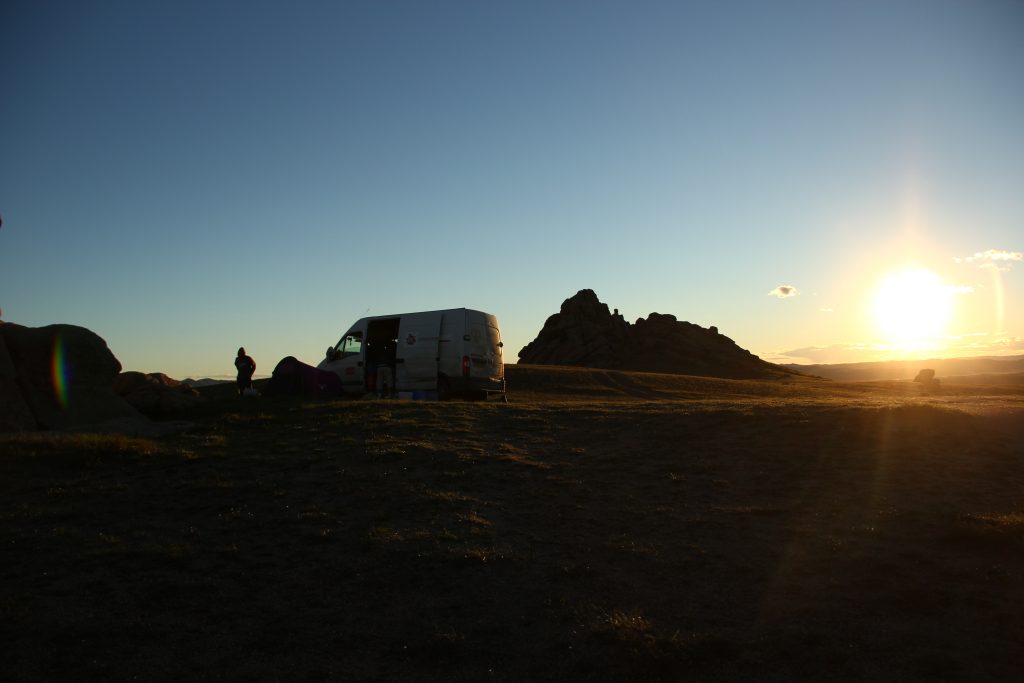
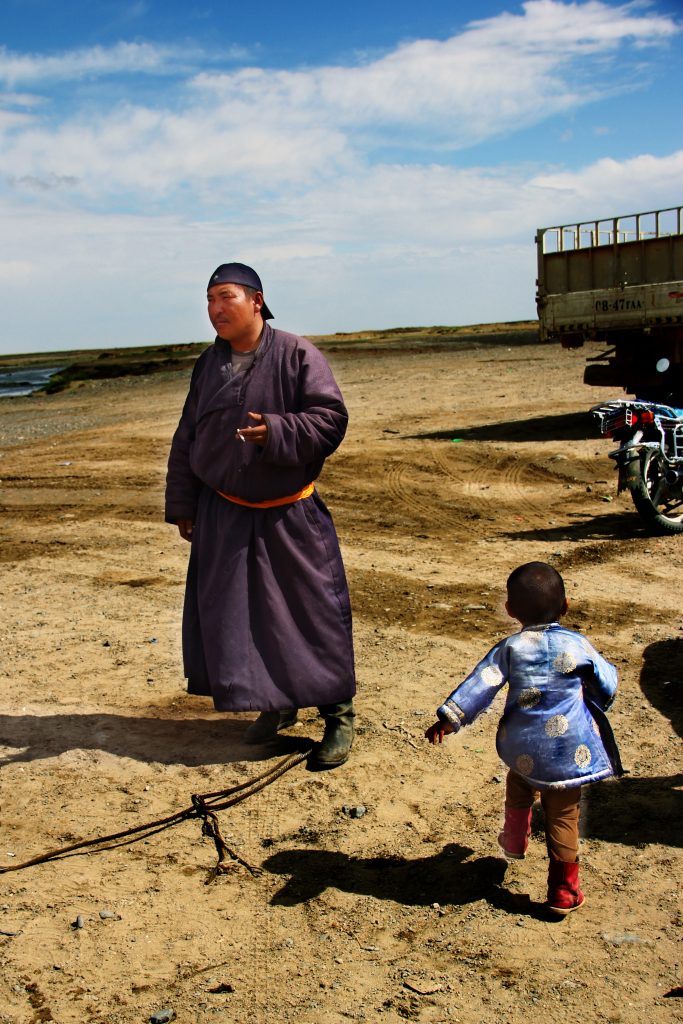
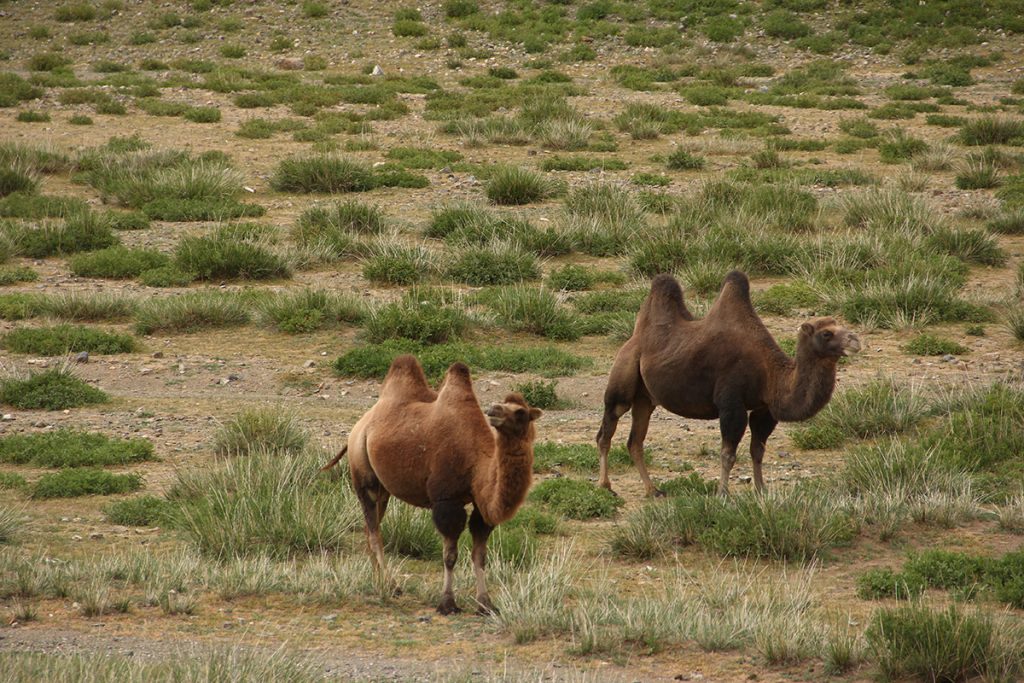
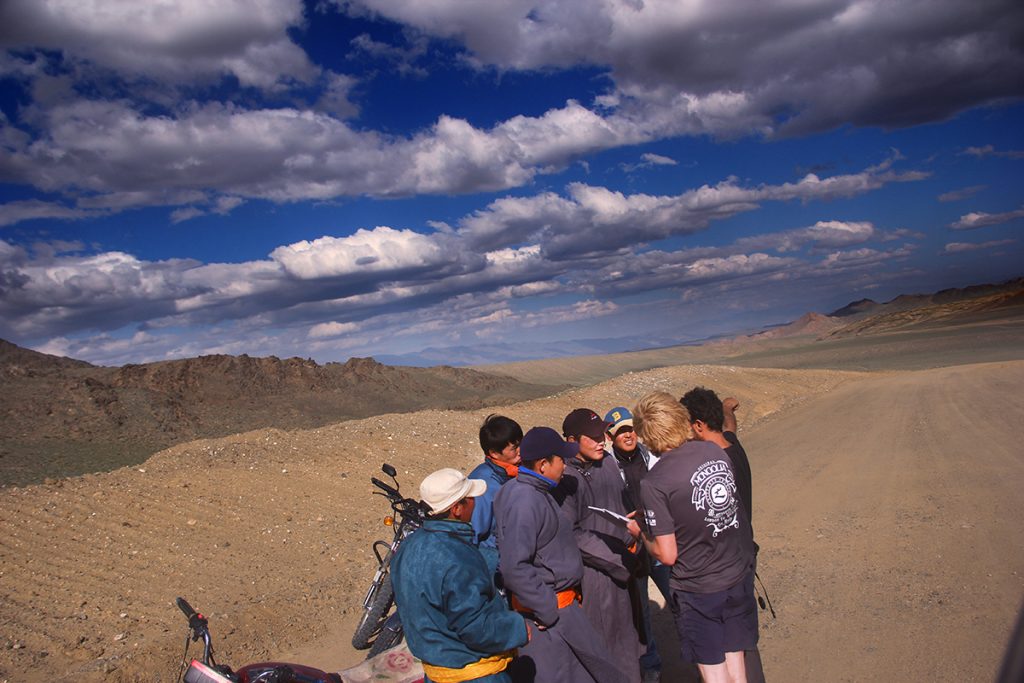
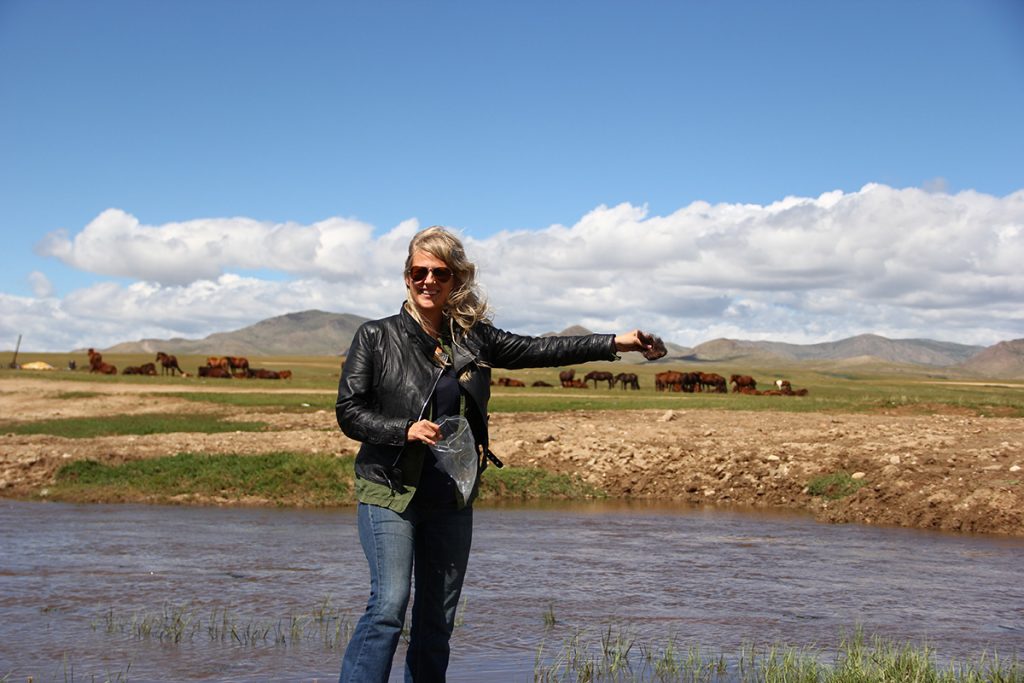
Driving into Ulaanbaatar was anti-climatic. The city is a dump, smoke stacks graying the sky and drab soviet-era apartment blocks lining the streets. There are piles of dirt everywhere. Nearly half of Mongolia’s population live in the capital and they all seem to have a car. The traffic is horrendous. We asked directions to the center but only one person answered us, in German.
Upon further exploration, Ulaanbaatar is an odd but interesting place. Older women stroll by in the deel, the traditional padded Mongolian dress, while young women favor miniskirts and heels. Expensive cars ply streets lined with Irish pubs, European bakeries, pizza joints and a microbrewery. North Korea even has its own restaurant.
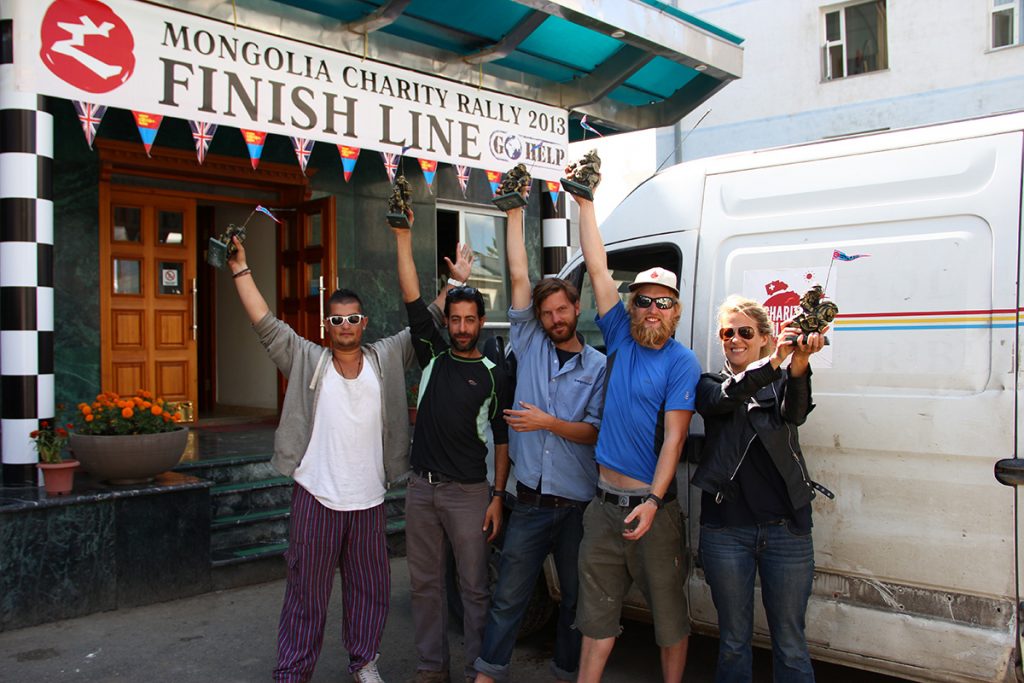
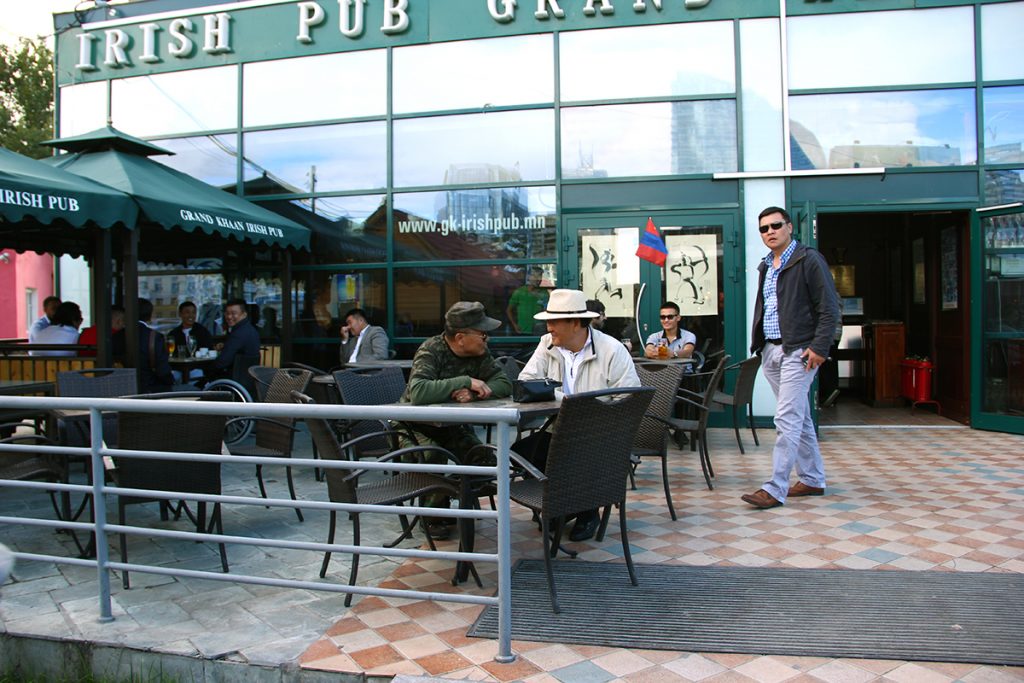
Mongolians love Genghis Kahn. There are at least four different Genghis vodkas for sale in convenient stores. On the main square, in a small building just next to the statue of Genghis Khan, is a 70-million-year-old dinosaur skeleton, the Asian version of the Tyrannosaurus Rex.
The money pouring in is obvious. Mongolia is one of the world’s fastest growing economies, thanks to direct foreign investment in the mining boom, the poverty rate has dropped significantly and life expectancy is up.
But the city still feels rough. Neo-Nazism is slightly popular. A large homeless population lives in the sewer tunnels underground, and alcoholism is a real problem. I went out alone late one night, parched and looking for water, and got followed by a large, creepy man. He was so drunk he was easy to out walk.
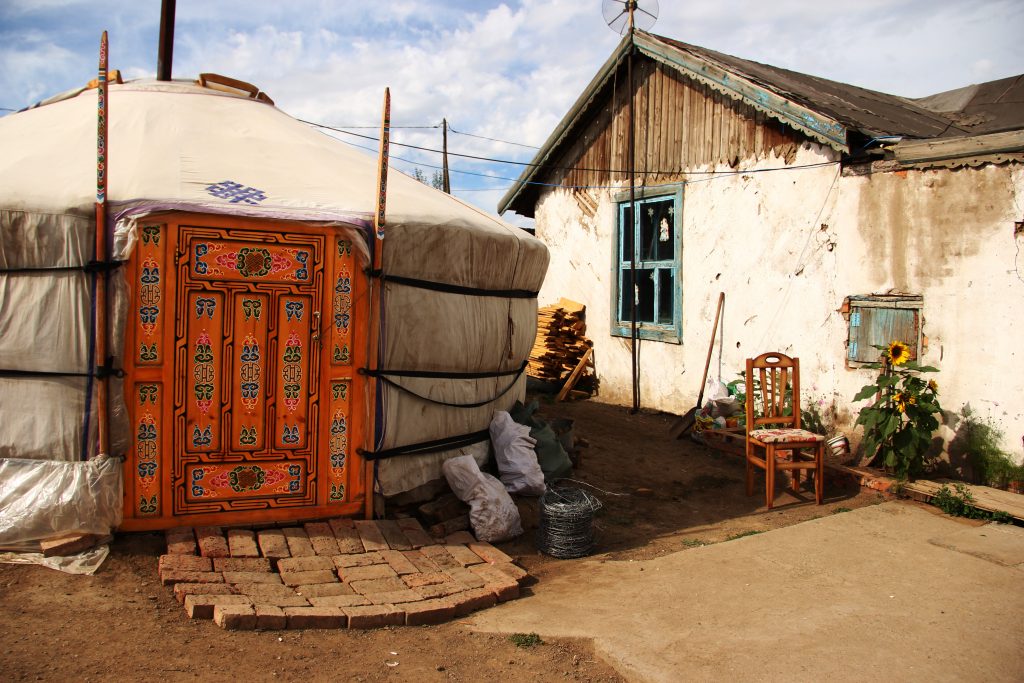
One afternoon, we visited one of Go Help’s charity education projects called the Book House. The one-room building, walls lined with books, is in the fringes of the city, down an alley in one of the sprawling ger districts. Extreme winters have killed livestock and forced thousands of destitute nomads to pitch their gers here in small fenced-in yards.
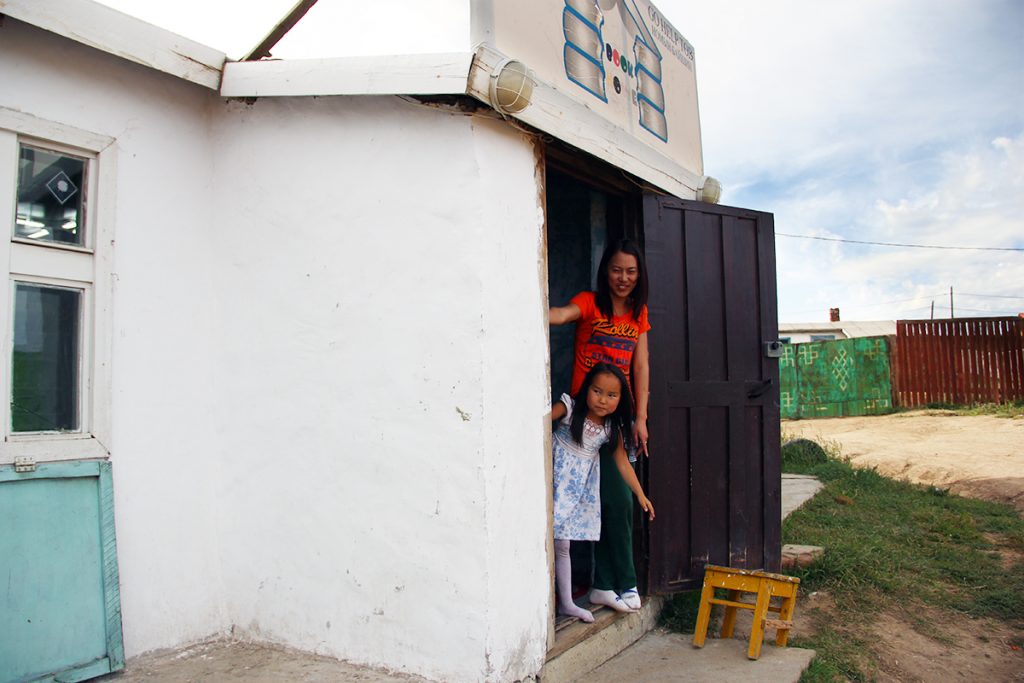
On the day we visited, the book house was closed. The librarian, whose ger is next door, opened just for us. A few kids hung out watching YouTube videos about dogs on the only laptop and playing made-up ninja games. One confident little girl took Owen’s photo on her sister’s phone and then got Alex and Yoav to teach her guitar. On other days of the week, we were told, about 20 children come daily for English lessons and various activities. It’s a much needed operation, a safe, welcoming place for the community to hang out, interact, read and learn. One little boy gave me a handmade felt ger as I left.
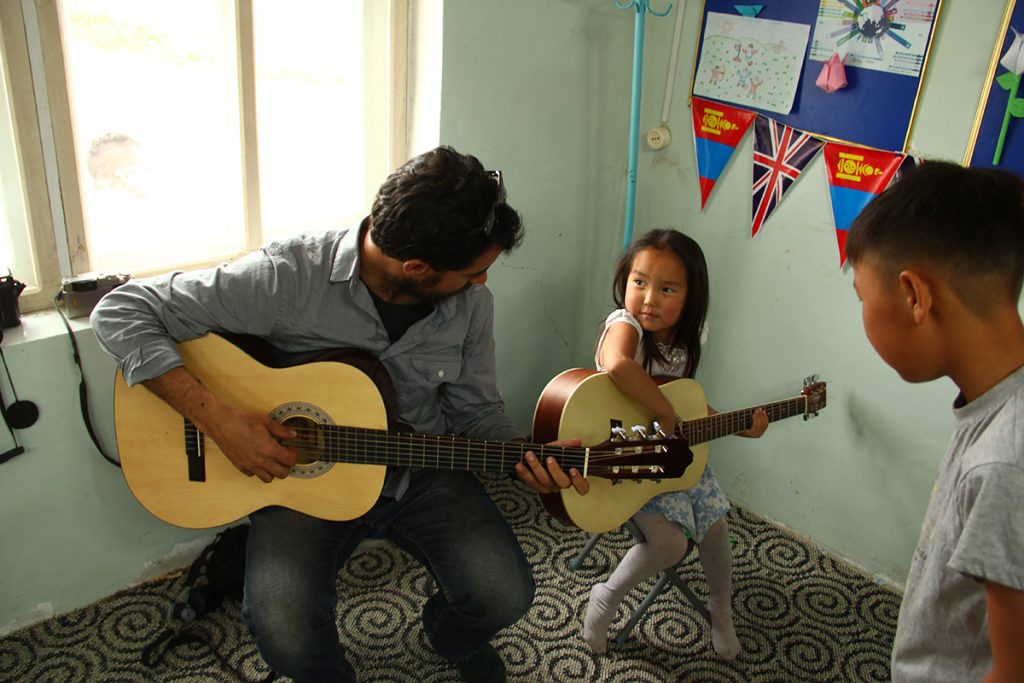
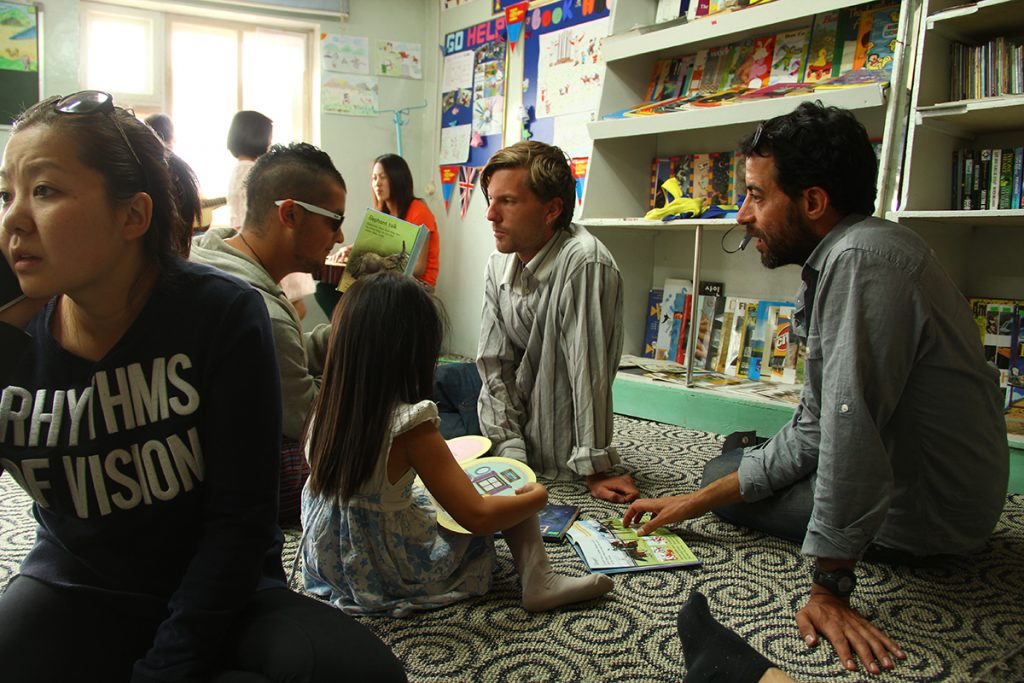
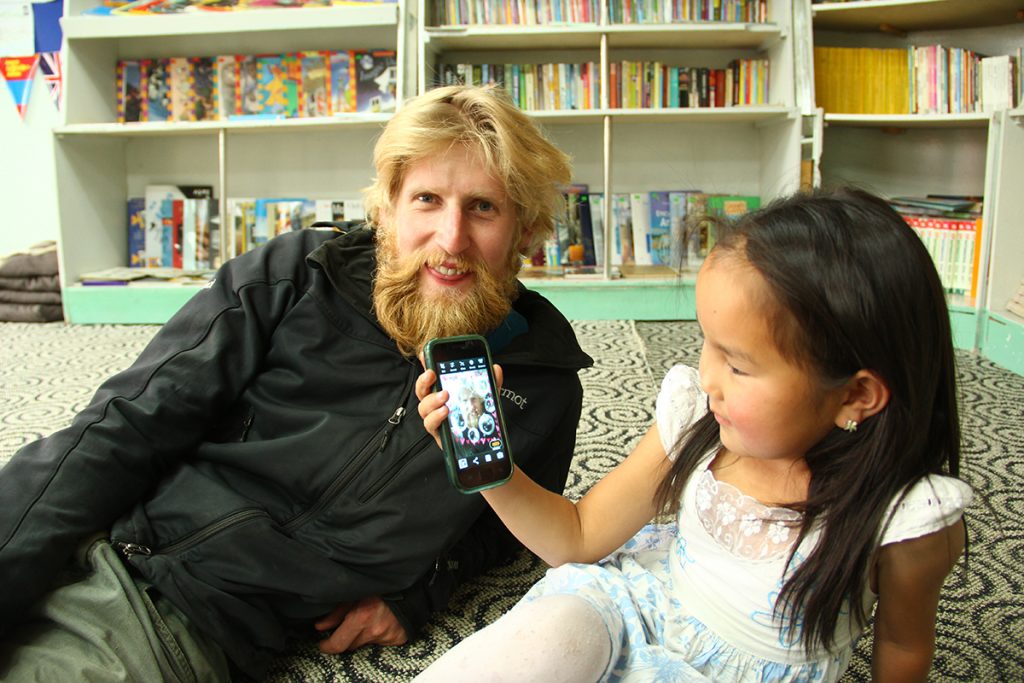
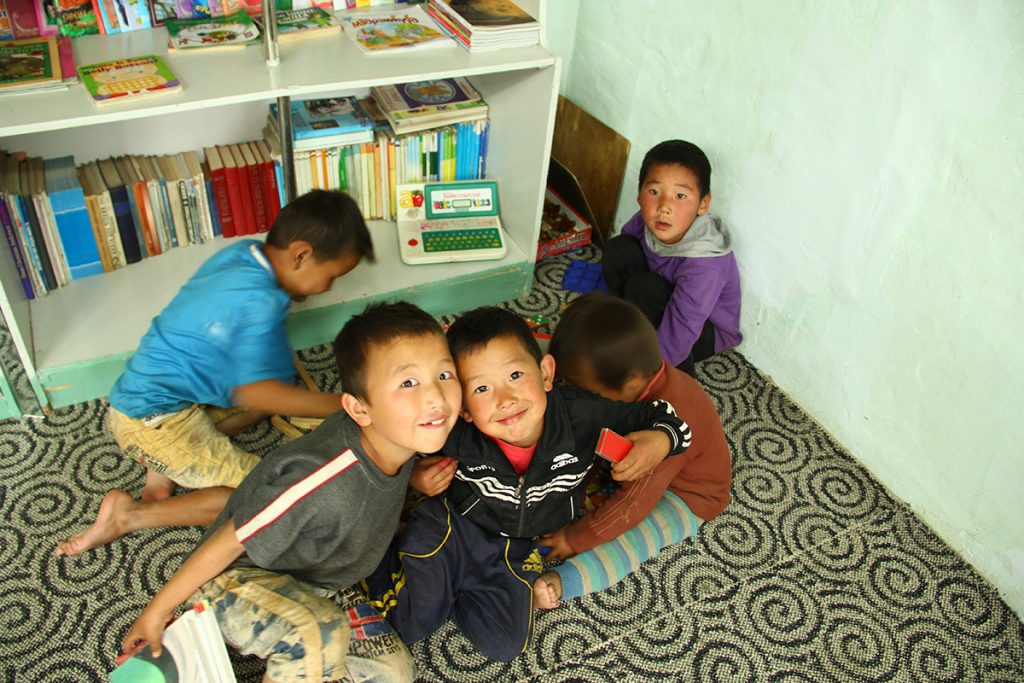
Go Help is a small operation. The charity is run by a handful of volunteers and a few staff members, whose salaries are paid from rally entry fees, out of a donated office space in UB. There is also a volunteer in London and a five-member board of trustees. Its primary income is from its rallies. In the last five years, ralliers have donated 270 vehicles and raised $600,000. Most of the money raised goes straight into health and education charity projects.
We took the bus back to the city. Owen had dropped the van off at the car wash and they had called to say it wasn’t starting. We pushed it down the street back to Go Help. The day before, as we walked up to the building, another team was being towed in. Munhuu has a lot of work ahead of him.
No van meant we walked or took taxis. In Ulaanbaatar, everyone is a taxi. Just wave your hand and within a few seconds, someone pulls over. Anywhere costs a few dollars. It’s a great system.
On Sunday, the Bandits left for England and Yoav and I went for margaritas. I was sad it was all over. If someone had given me a car to drive back, I would have gladly done it. The next day, 53 days after leaving London, we flew one of Hunnu Air’s two international planes direct to Hong Kong. It took less than five hours to get home. Driving is a lot more fun.
Thank you to everyone for all the support, emotional and financial, from start to finish. It was an incredible trip, full of meaning and adventure. It’s still hard to believe anyone is actually reading this blog. If you are, a special thanks to you! More photos to come soon, especially for our sponsors whom without, we couldn’t have done this trip. A large portion of your money went to Go Help, which I believe is a valuable and sincere operation doing great things for the people of Mongolia. Thank you! And I still have a few stories left. They might come out yet. -Robin

